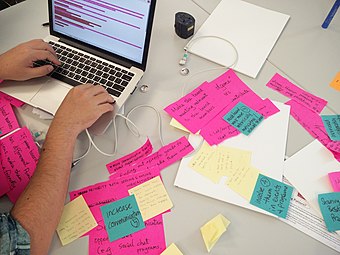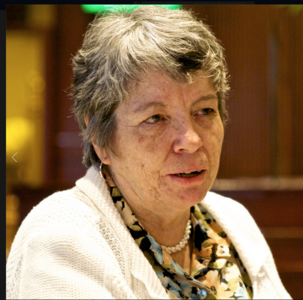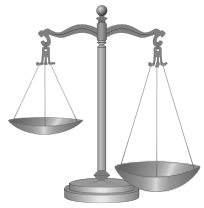Learning and Evaluation/Newsletter/2016/3/9
blogs, events
on Meta!
For the third year in a row, the Wikimedia Conference was preceded by pre-conference Learning Days for affiliates that want to improve their skills in community engagement, program design, and evaluation.
The pre-conference Learning Days at Wikimedia Conference in Berlin this year was filled with several peer-to-peer community engagement sessions with four priority themes: engaging and retaining volunteers, exchanging best practices, designing Wikimedia programs and events, and measuring and evaluating impact. The lessons learned from this exercise has shaped the upcoming Learning Days at Wikimania 2016 Esino Lario.
During the Wikimedia Conference Learning Days (April 21-22), 51 community participants as well as various foundation staff who lent their presence and support for learning exchange, engaged with each other and learned skills through various workshops, panels and presentations, in order to grow the best out of their Wikimedia programs and projects. These two days condensed a collaborative platform for program leaders to learn from each other, harvest resources and enhance skills. While the main conference works as an avenue for high-level discussions, the Learning Days are meant for more granular understanding of the affiliates and building relations for more engagement in the future.
Program leaders were encouraged to engage in three different ways in order to have a better peer-to-peer learning: submitting a poster, presenting a lightning talk or co-hosting a workshop. Learning Days at Wikimedia Conference had the highest participant engagement rate to that point. Further, 60% of the participants (31 out of 51) gave feedback on the Learning Days, sharing what they liked the most from the tracks, wanted to improve in the future, and what they were planning to do in the next 30 days. Details of the learning are captured on the Meta-wiki event page. These feedback helped informed Learning Days planning for Wikimania Esino Lario, that had similar levels of participation and a somewhat higher engagement rate than the previous edition only 6 weeks before (we will publish the outcomes of Wikimania Learning Days during August).
How are participants going to apply the skills gained during Learning Days in the near future? An analysis of the feedback forms reveals that, in the next 30 days, program leaders hope to spread these capacities in two different ways: bringing back processes to their local communities, and applying tools and resources to their projects.
More info:
- Developing leadership: Learning Days at the 2016 Wikimedia Conference
- Outcomes of the Learning Days at Wikimedia Conference 2016 Berlin (feedback data, presentations and pictures)
- Learning Days at Wikimania Esino Lario (Outcomes forthcoming)
How the annual affiliates international gathering benefits from organizing a conference with a long-term perspective.
By Cornelius Kibelka
Wikimedia Deutschland organizes the Wikimedia Conference 2015, 2016 and 2017. With this new focus, the chapter rethought how to organize a conference program- and logistics-wise.
Back in 2015, Wikimedia Deutschland made a commitment to host the Wikimedia Conference - the international gathering of Wikimedia affiliates - that year and through 2017. Having a long-term perspective and dedicated staff has allowed the chapter the capacity to think creatively and bring the conference to the next level.
We proposed the concept of «Program and Engagement Coordination» to create a conference program based on the wishes, needs and experiences of the participants. We also aim to create a structured follow-up process between the conferences to keep people working on this international gathering. After two editions of the Wikimedia Conference (2015, 2016) we can say this strategy has certainly been successful; everyone can now see the impact on our current report. A structured follow-up process is far from being easy, it takes a lot of time, patience and commitment. We also still consider it to be in an experimental stage and there‘s always room for improvement.
There are several examples for topics that are followed up since the Wikimedia Conference 2015. One of these topics is around partnerships and external (third-party) fundings. In the aftermath of the Wikimedia Conference 2015, Cornelius Kibelka, Program and Engagement Coordinator, facilitated an exchange between three affiliate staff members working on this topic: Anne-Laure Prévost (from Wikimédia France), John Andersson (from Wikimedia Sverige) and Nikki Zeuner (from Wikimedia Deutschland). After several calls, the small group agreed to conduct a survey among the Wikimedia chapters on these topics to assess what work needs to be done and where. The results were pretty clear: chapters have limited capacities around partnerships and are challenged to find good funding opportunities.
Since then, the group is focused on preparing learning material and learning sessions around partnerships and external fundings at Wikimedia events and also new members, Sydney Poore and Alex Stinson, joined the group. Their focus is not only sharing learnings, but also working towards building a «Community of Practice», a group of experienced program leaders that can mentor and support others, as well as practice peer-to-peer-exchange of best practices. This model became relevant in early 2016, when Wikimédia France had a shortage in funding, and the group provided important and meaningful advice.
We hope to continue establishing working groups, as their support beyond the limited staff time is a first important step towards more collaboration and shared learnings in the Wikimedia movement.
More info:
blogs, events & more!
Every month, we share knowledge with a focus on programs, process or tools on Wikimedia Foundation's blog. Find all our entries on the Wikimedia blog
Featured blog posts:
Sonja Bohm worked for years to get all of Florence Earle Coates’ poetry online, and now proofreads poetry on the English Wikisource, the free library. Sonja's personal journey in unravelling the forgotten poet's works and opening up an incredible place on Wikisource for the poetry lovers. "It is the stuff of the soul; it speaks to the body, the mind, and the spirit alike", shares Sonja in the Wikimedia blog.
Read more.
Using Wikipedia as an educational tool for students is as critical as anything and still in an experimental phase even though the Wikipedia Education Program is actively running over 20 countries in the entire world. Academician and Wikimedian Professor Luz María Silva from Mexico has sailed against all odds for encouraging her students to write Wikipedia articles in their midterm examinations since last three years.
Read more.
| August
| ||||||
| Mon | Tue | Wed | Thu | Fri | Sat | Sun |
| 1 | 2 | 3 | 4 | 5 | 6 | 7 |
| 8 | 9 | 10 | 11 | 12 | 13 | 14 |
| 15 | 16 | 17 | 18 | 19 | 20 | 21 |
| 22 | 23 | 24 | 25 | 26 | 27 | 28 |
| 29 | 30 | 31 | ||||
August 2: Project Grants call for proposals closes.
August 5 - 7: WikiConference India 2016.
August 27 - 29: Wikimedia CEE Meeting 2016.
| September
| ||||||
| Mon | Tue | Wed | Thu | Fri | Sat | Sun |
| 1 | 2 | 3 | 4 | |||
| 5 | 6 | 7 | 8 | 9 | 10 | 11 |
| 12 | 13 | 14 | 15 | 16 | 17 | 18 |
| 19 | 20 | 21 | 22 | 23 | 24 | 25 |
| 26 | 27 | 28 | 29 | 30 | ||
September 1 - 30: Outreach Education Campaign. Follow ![]() WikiEduProgram to find out more!
WikiEduProgram to find out more!
September 28: FDC Impact Report due.
| October
| ||||||
| Mon | Tue | Wed | Thu | Fri | Sat | Sun |
| 1 | 2 | 3 | ||||
| 4 | 5 | 6 | 7 | 8 | 9 | 10 |
| 11 | 12 | 13 | 14 | 15 | 16 | 17 |
| 18 | 19 | 20 | 21 | 22 | 23 | 24 |
| 25 | 26 | 27 | 28 | 29 | 30 | 31 |
October 1: Board decision due for FDC Round 2.
October 7 - 10: WikiConference North America
Wikimedia Argentina's Wikipuentes: Bridges between school, digital and free culture.
By Luisina Ferrante
How an online campus helped the chapter take their education program to the next level.
During the first months of this year, the staff of Wikimedia Argentina found itself working on the design and the pedagogy of creating a virtual campus where teachers and educators from different parts of the world can share their experiences in their classrooms by using Wikipedia as an instructional tool. The campus is divided in different interactive spaces. The main one refers to the massive and virtual courses, like the one we are doing now «Wikibridges: Bridges between school, digital and free culture» an innovative distance learning training about the Wikimedia projects.
In this space of the virtual platform we open the discussion forums divided into groups where teachers enrolled in the MOOC. We propose activities regarding the use of Wikipedia in the classroom and Wikimedia projects in general. In turn, also we took theory lessons to accompany the exchange in discussion forums.
Another space within the campus is the one used for sharing resources, where you can find all of WMAR's publications, our documentary film and many tutorials about how to use Wikipedia in different contexts and how to become an active editor, among others. In this space we are constantly updating information in reference to the chapter in Argentina and teachers production created during the Wikibridges course.
Last but not least, the community space has been designed as a place to build community and share experiences and where all of the people involved in our online activities can share their impressions about education, technology, the digital gender gap, and anything else that they might consider interesting, in order to cooperate and collaborate on our daily work regarding the construction of free knowledge.
We believe that having on online campus has really helped us take our education program to the next level. In this virtual space we were able to both organize dates, timelines and resources, and also, have a specific place for consultations and follow up with educators that took part in the MOOC. This campus was key in making the group of participants of our MOOC into a community of educators that feels part of Wikimedia.
Further Reading:
- Wikipuentes MOOC 2016 report (Only in Spanish)
- Learning Pattern on the MOOC Edition 2016
- Virtual Campus (only in Spanish)
- Wikimedia Argentina Education program page on Outreach
IdeaLab is a space where wikimedians all over the world share their inspiration with others.
IdeaLab is an incubator for people to share ideas to improve Wikimedia projects and to collaboratively develop them into plans and grant proposals. These are two selected ideas from the latest Inspire Campaign on harassment:
Wikimedia, as a movement has a lot to learn from the other open collaborative communities especially their commitment to inclusiveness and define limits on behavior. This need has triggered an idea to adopt the "Contributor Covenant" and other likeminded organization policies to apply to the Wikimedia Project as a whole. Read more.
There is no place users can go to get explanations for official actions, except for outside Wikipedia criticism sites that may not respect their privacy. Read more.
Join the IdeaLab community. You can help develop ideas in many ways: with technical skills, translating, networking and more. Share your own!
The Program Evaluation & Design portal has tools to learn about your activities and measure their success.
The Learning Pattern Library is a hub to share learning around certain challenges that are common across Wikimedia programs and projects. Featured Learning Patterns in this issue:
You've attracted newbies to your program or event but you don't know how to motivate them to stay as editors. How to solve this problem? Learn more.
Appreciation of voluntary work is an important factor in keeping people motivated. This is the first of a series of three learning patterns on the topic. Read more. Share what you know with the PE&D Community. Introduce yourself in the Community!

















